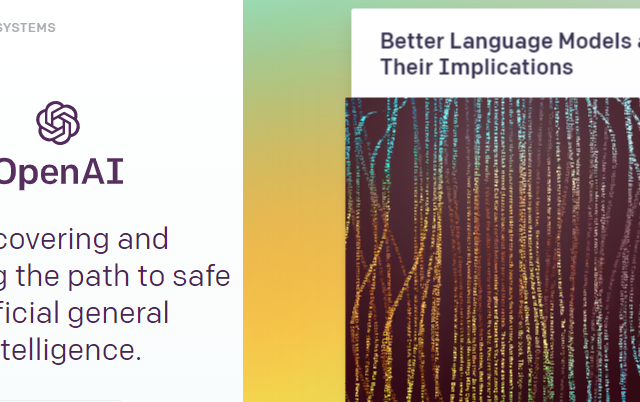I’m sure you’ve seen the recent news coming out of OpenAI’s GPT2, looking at the most recent developments to AI text generation. This brings with it a number of clear moral and technical issues, not least of which is along the lines of “how will my son’s teacher know who wrote his homework”. The quality of the text examples we’ve seen are really rather impressive to say the least. Looking at the timeline so far in the AI journey, it seems we’re progressing at a significant rate. It wasn’t that long ago that we were being amazed by computers simply being able to compete with us in games of chess.
Most of us have had those annoying exchanges with Google Home or Amazon Alexa, where they just don’t understand what we’re trying to ask for. Clearly, in that last sentence I’m giving a small insight into how far we’ve come. I said, “they just don’t understand”. At what point over the past few years, did we end up in the situation of generally expecting that our commands would actually be understood by the machines?! This is surely the stuff of Hollywood.
How long will it be, before this technology is bought / swallowed up and commercialised by Google / Microsoft / Amazon / Apple [insert universally disliked but omnipresent symbiotic conglomerate of your choice here]? I’d predict that by the very early part of the next decade, I’ll be looking back at this article and laughing at how far we’ve come…
One piece of text, completely invented by the system reads: “Asked to clarify the reports, a spokesman for May said: ‘The PM has made it absolutely clear her intention is to leave the EU as quickly as is possible and that will be under her negotiating mandate as confirmed in the Queen’s speech last week.’”
I’ll leave you with a video of a recent piece of work we did to integrate the AI capabilities of OpenAI and Google Home. It’s striking, the level of comprehension, the poignancy of prose that this collaborative creation possesses…
OpenAI’s “mission” from their website:
OpenAI’s mission is to build safe AGI, and ensure AGI’s benefits are as widely and evenly distributed as possible. We expect AI technologies to be hugely impactful in the short term, but their impact will be outstripped by that of the first AGIs.
We’re a non-profit research company. Our full-time staff of 60 researchers and engineers is dedicated to working towards our mission regardless of the opportunities for selfish gain which arise along the way.




